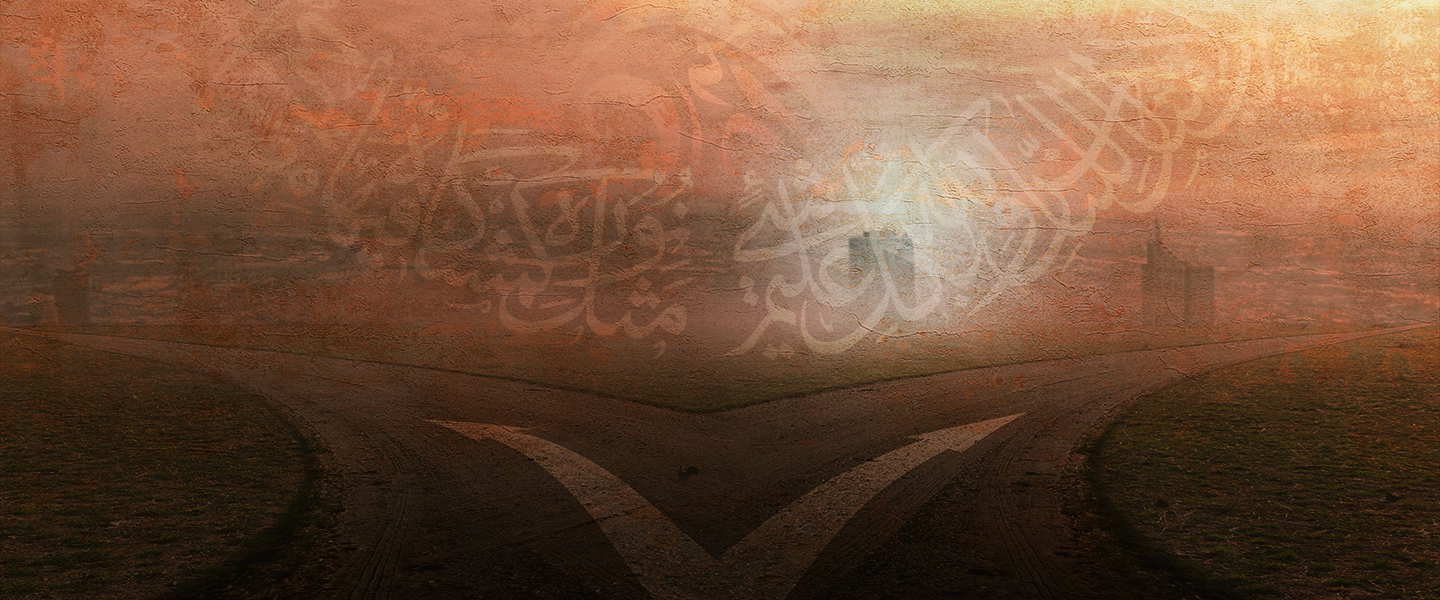
The misunderstanding regarding predestination stems from the apparent contradiction between predestination and Allāh’s Justice. Allāh ﷻ states in the Qur’ān that man will be held accountable for the actions he performs. He will be rewarded for the good that he does and punished for the evil that he does: “Indeed those who believe, and do righteous deeds, and establish the prayer and give charity (zakāh), will have their reward with their Lord”Qur’ān 2:277 and “And whoever disobeys Allah and His Messenger and transgresses His limits will be admitted to a Fire and for them is a humiliating punishment” Qur’ān 4:14depicting accountability for one’s actions. Furthermore, Allāh also describes Himself in the Qur’ān as being Just, “Verily Allāh does not do injustice to mankind.”Qur’ān 10:44 Therefore, since Allāh is Just and man is held accountable for his actions, it is not possible for man to be compelled, as that would entail injustice. Hence, it necessitates that man is enabled with free will to choose his actions; however, the concept of predestination seems to negate man’s free will.
“Allāh is the Creator of all things”Qur’ān 39:62 and “And Allāh created you and what you do.” Qur’ān 37:96
Conversely, the Qadariyyah believe in absolute freedom of will. They argue that since Allāh ﷻ is Just, compelling His creation to disobey Him and then punishing them for this action is an impossibility. Hence, they reason that it is not possible for Allāh ﷻ to Will that mankind commit evil despite commanding them against it. Therefore, they argue that the actions of human beings are pre-eternally known to Allāh ﷻ but are not willed and created by Him ﷻ. The actions of man are therefore his own, created by him, independent of Allāh’s ﷻ Will.
According to Ahl al-Sunnah, both the views of the Jabariyyah and the Qadariyyah are incorrect. Because Allah ﷻ is Just, the pre-eternal compulsion of the actions of the human being would negate the concept of accountability. On the other hand, it is also impossible for something to occur independently of the Will and Creation of Allāh ﷻ. To argue otherwise is to contradict the unequivocal verses in the Qur’ān which state that Allah ﷻ Wills and Creates all things, including our actions, as discussed above. Hence, Ahl al-Sunnah believe that the correct way to understand the choice and actions of the human being is to be found between these two extremes. For those seeking deeper understanding, exploring reputable online Islamic courses can provide valuable insights into these theological debates.

The understanding of Ahl al-Sunnah is that Allāh ﷻ has created within man the capacity to choose his actions. The Omniscience of Allāh ﷻ does not negate this free will. This is because although the choices of man indeed exist within the pre-eternal knowledge of Allāh ﷻ, His knowledge does not bear any causal effect on the actions of man. If an individual is presented with the choice to perform an action, he can either choose to do it or not. Although his choice is pre-eternally known to Allāh, this does not compel him in any way.
To properly grasp this concept, assume that there exists the possibility of traveling into the past. Through this modality, one travels back to the moment before Abū Lahab is called towards Islam by the Messenger ﷺ. The time-traveler is well aware of the choice Abū Lahab will make in the following moment, yet his foreknowledge does not bear any causal effect on the choice of Abū Lahab. Similarly, although Allāh’s ﷻ pre-eternal Knowledge encompasses the choice of mankind, it does not compel them.
Furthermore, since every occurrence in the universe is contingent upon Allāh’s ﷻ Creation and Will, it is by His pre-eternal Knowledge of the choices mankind will make that He pre-eternally Wills for their actions to exist.[footnote]It should also be noted that the argument for determinism assumes that the Knowledge and Will of Allāh ﷻ precedes the choice of the individual in a temporal sense. This is false. Since time is merely a creation of Allāh ﷻ, He and His attributes, including His Knowledge and His Will, transcend it. He is not subject to time, past, present, and future, like the rest of creation is. Al-Imām al-Taftāzānī (d. 793H) explains this concept in his commentary on al-‘Aqāid al-Nasafiyyah as follows:
If it is said, ‘Given the all-encompassing attribute of Allāh’s ﷻ knowledge and will, compulsion [of mankind] is necessary. This is because either they [Allāh’s ﷻ knowledge and will] are linked with the occurrence of an action, thereby necessitating it, or with the nonexistence of it, making it impossible. And there is no room for choice in that which is necessary and impossible.’ We respond to this by saying ‘He Knows, and He Wills that man either performs an action or does not based on his [man’s] choice. Hence, there is no contradiction. Ibn ‘Umar al-Taftāzānī, Mas’ūd. Sharḥ al-‘Aqāid al-Nasafiyyah, Second ed., 211. Karachi: 2013, مكتبة البشرى
Consequently, Allāh ﷻ Created within Abū Lahab the capacity to decide whether to accept or reject Islam. It was pre-eternally Known to Allāh ﷻ that Abū Lahab would choose to oppose Islam. Based on His pre-eternal Knowledge of that choice, Allāh ﷻ Willed for the actions and disbelief of Abū Lahab to occur, in accordance with Abū Lahab’s own free will. Hence, neither the Knowledge nor the Will of Allāh ﷻ negate Abū Lahab’s own choice, nor do they compel him by making his choice necessary. It is due to his own choice that he disbelieved, and he can therefore justly be held accountable for it in the hereafter.
Although Allāh’s ﷻ predestination of man’s actions may appear to contradict the existence of man’s own free will, close analysis of the matter reveals that this is not the case. The two premises can be reconciled without limiting the Omniscience and the Will of Allāh ﷻ or the free will of man, which is the source of his accountability. The Omniscience and the Will of the Creator ﷻ do not compel individuals with regard to their actions. Rather, by His Omniscience and Will, Allāh ﷻ creates the actions of man to correspond with man’s own freely willed choices. This is a basic explanation of Ahl al-Sunnah’s belief regarding the reconciliation of Predestination and free will.